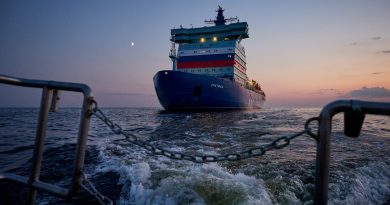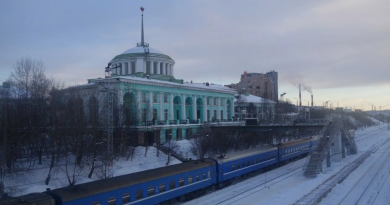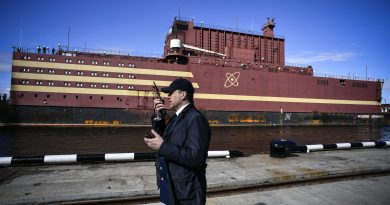Ten months after spill in Arctic Russia, inspectors fear more accidents at Nornickel’s oil tank farms

Several of the storage tanks are up to 70 years old and the company has failed to fix a huge number irregularities, inspectors from the Russian environmental control authority say.
An unannounced control mission conducted at the Taymyr Energy Company and the Norilsktransgaz has raised the concern about possible more accidents at the far northern oil facilities operated by mining and metallurgy company Nornickel.
According to the inspectors from federal natural protection agency Rosprirodnadzor, the companies have failed to follow up a big number of previously discovered irregularities.
The Taymyr Energy Company has fixed only 38 of 115 irregularities, while the Norilsktransgaz has carried out 42 of 81 breaches, the state agency informs.
The two companies are owned and managed by mining and metallurgy major Nornickel.
More incidents could happen says agency
The inspectors say that the storage installations are operated without required project documentation that provides proper protection of the surrounding environment and restoration of polluted grounds. Several of the oil storage facilities were reportedly built in the the period 1950-1970.
The inspection was conducted on request from Deputy Prime Minister Viktoria Abramchenko, and “the general conclusion is that the situation is not satisfactory,” the agency underlines.
The inspection comes after more than 21,000 tons of diesel fuel on the 29th May 2020 spilled into the tundra and local waters. The spill created an environmental catastrophe in the far northern region.
According to Rosprirodnadzor, the environmental catastrophe happed after the concrete foundation on which the reservoir rested began to sink. Following the sinking, the bottom of the reservoir detached from its walls whereupon the diesel oil spilled into the surroundings.
Billions in fines
The state agency has warned Nornickel that more similar accidents could take place. In a letter addressed to the Norilsk Taymyr Energy Company in June 2020, the environmental watchdog said that more reservoirs ultimately could collapse and that several thousand more tons of fuel could run into the vulnerable tundra
It was long believed that climate change was the reason for the oil spill. According to Nornickel and a number of environmental experts, the ground under the oil reservoir collapsed following the melting of permafrost. However, federal inspectors later rebuffed that theory.
In February 2021, the Krasnoyarsk Court of Arbitration decided that Nornickel must pay 146,18 billion rubles (€1.62 billion) for the environmental damage inflicted to the vulnerable Arctic nature.
Related stories from around the North:
Canada: Int’l Arctic emergency marine exercise will lead to better response coordination, say participants, Eye on the Arctic
Finland: Arctic Council experts gather in Helsinki for black carbon meeting, Eye on the Arctic
Greenland: Greenland and Denmark finalize cooperation agreement on marine pollution response, Eye on the Arctic
Norway: Norway to press Russia for action on Arctic smelter pollution, The Independent Barents Observer
Russia: Norilsk, Arctic Russia is world’s largest sulfur dioxide emissions hotspot: report, The Independent Barents Observer
Sweden: Many towns in Sweden seek funds to clean up polluted sites, Radio Sweden
United States: Alaska remote diesel generators win exemption from pollution rule, Alaska Public Media



